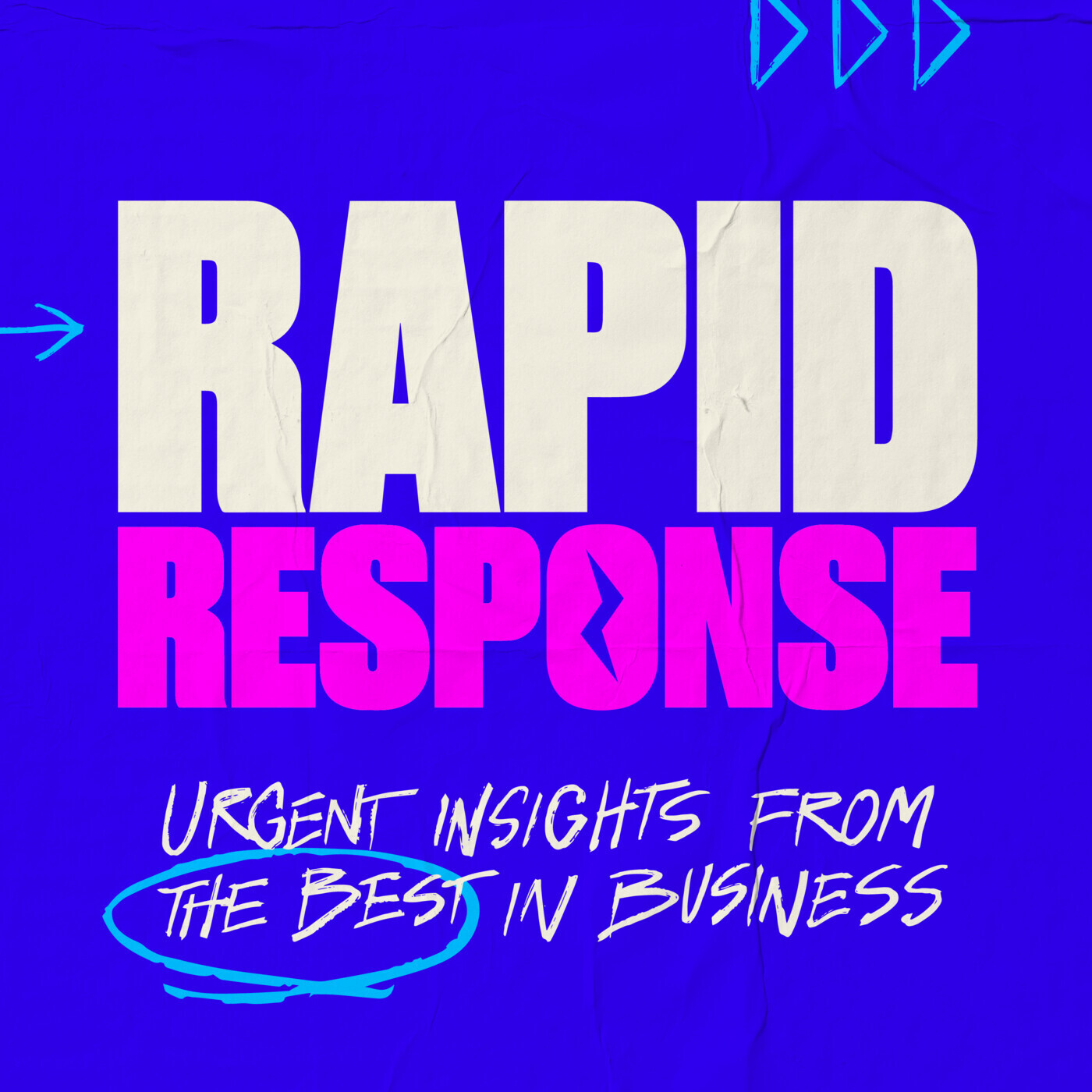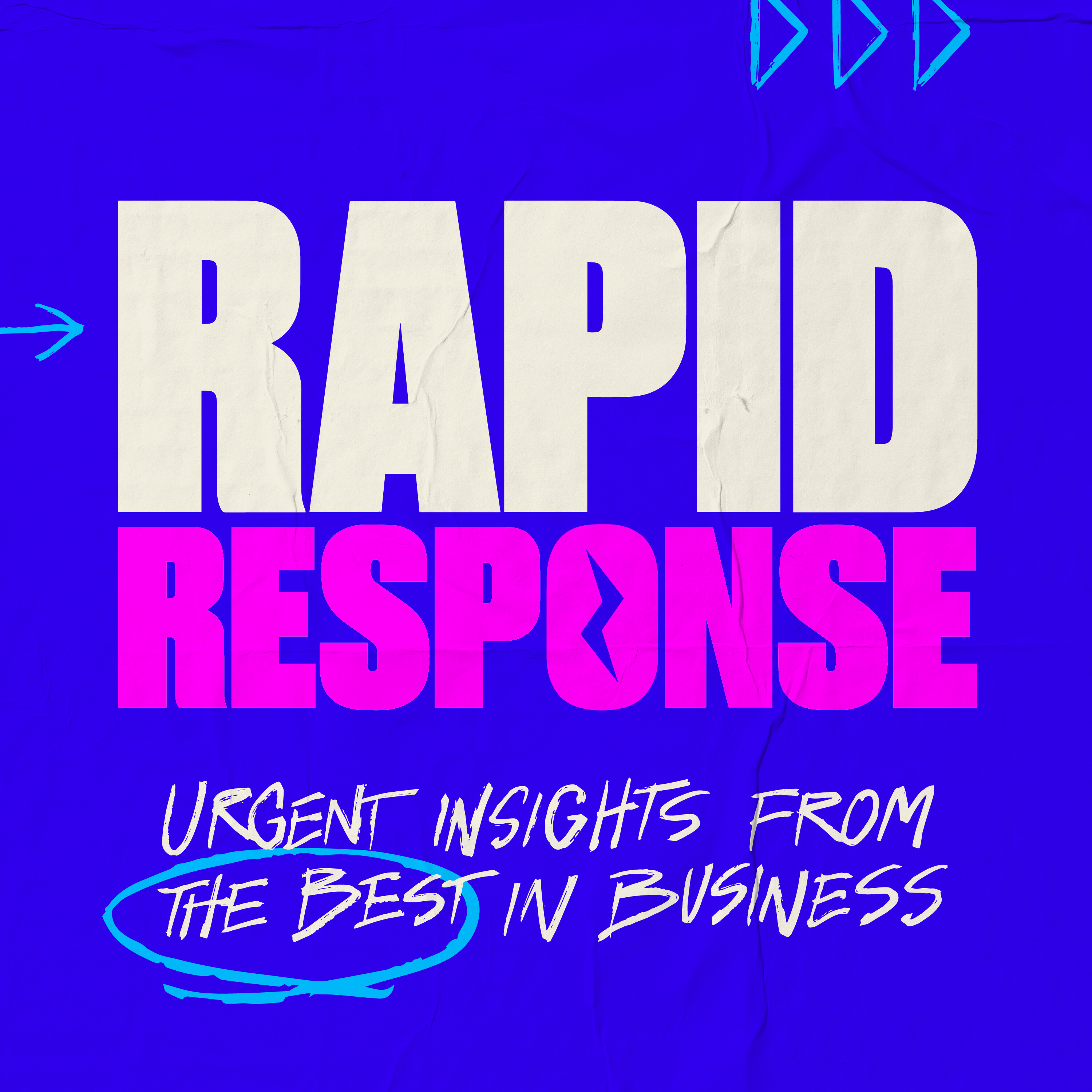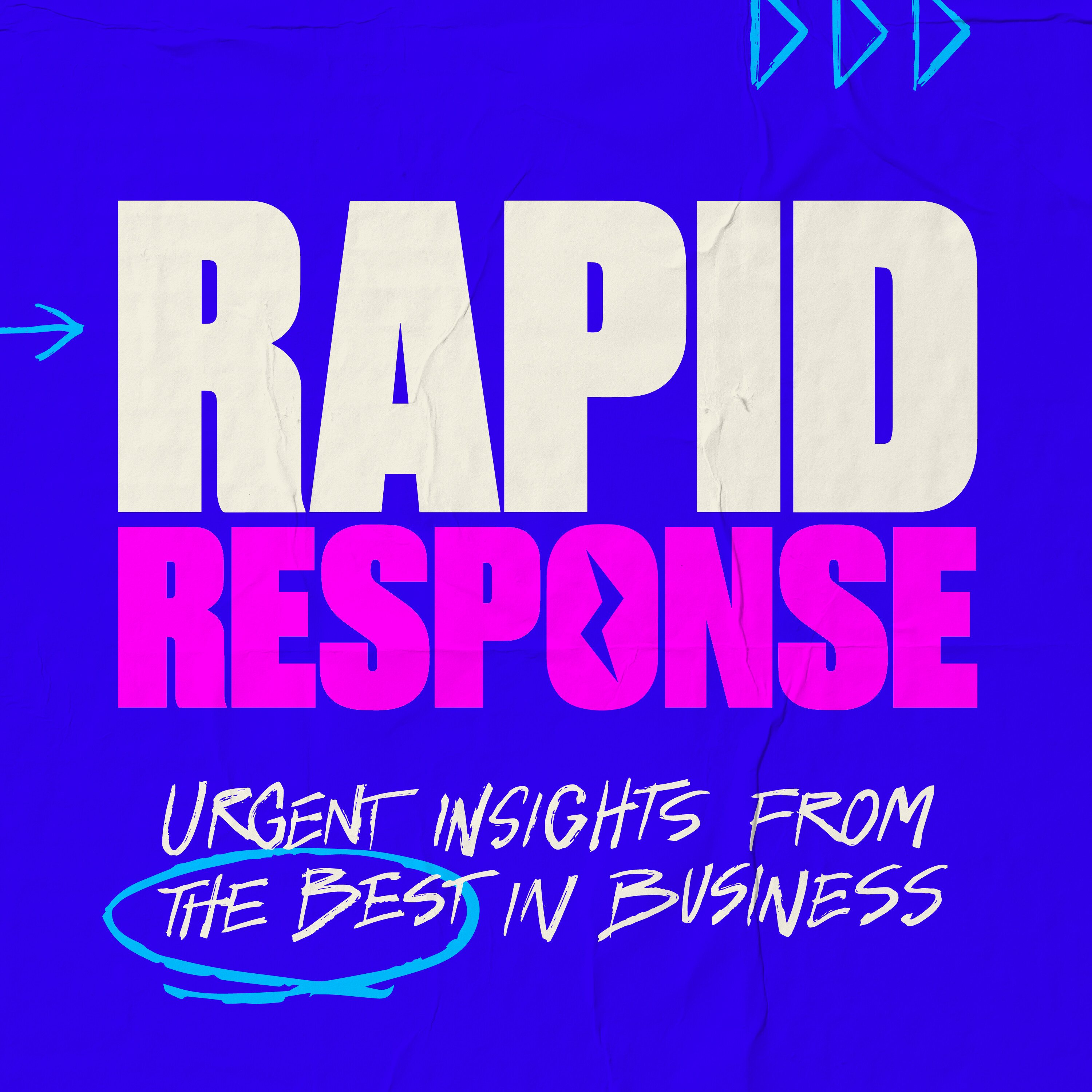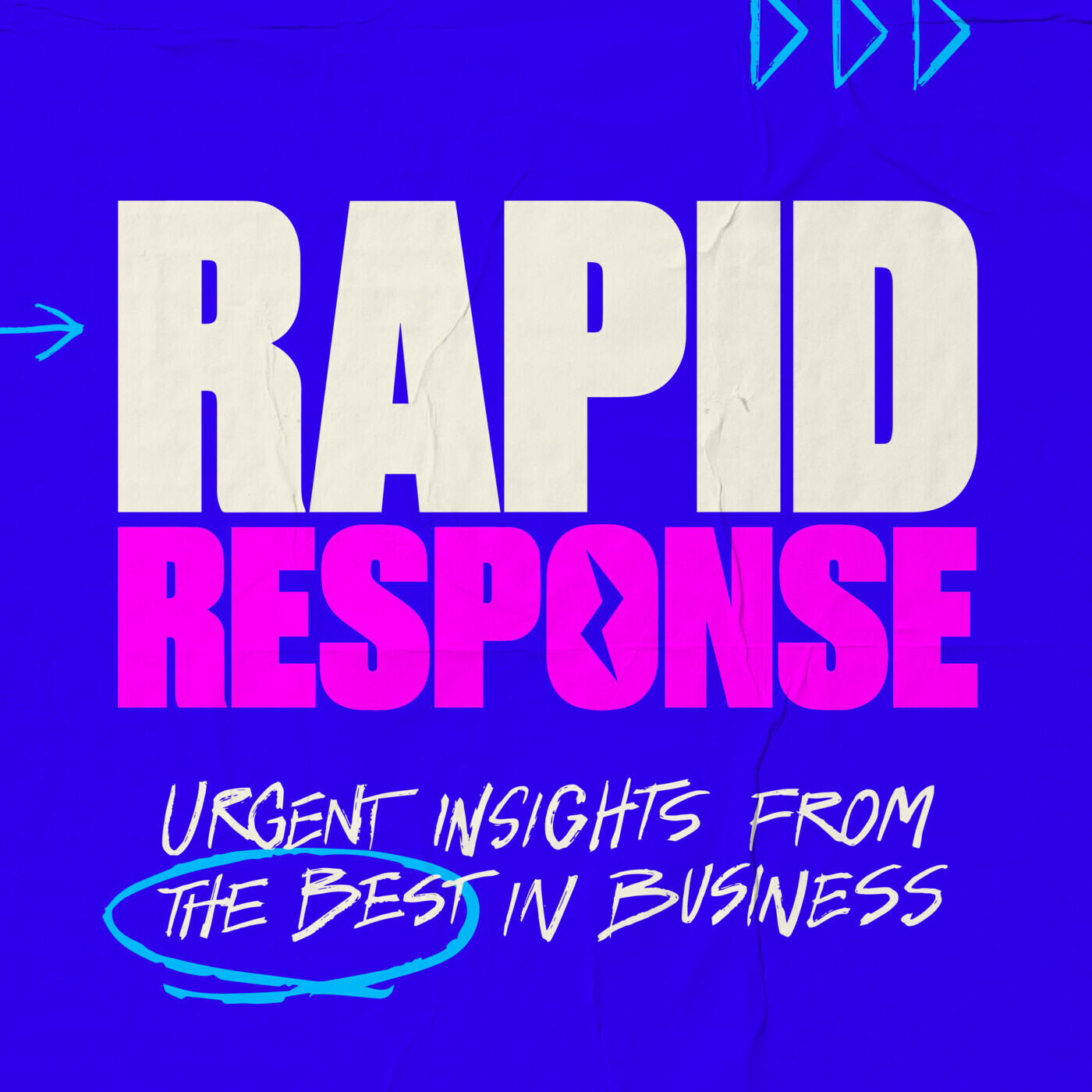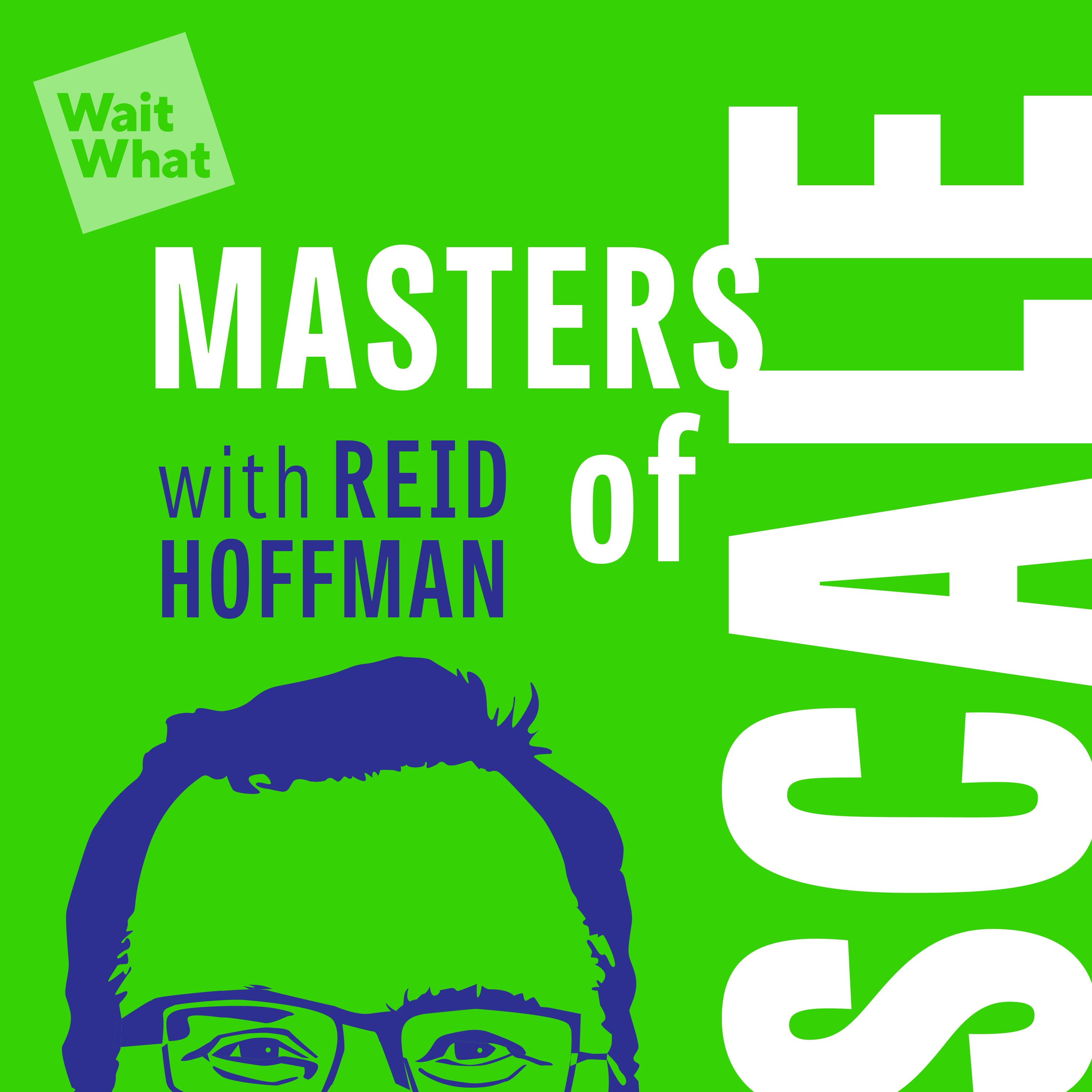
April 30, 2024 • 24min
Rapid Response: Meet your kid’s new AI tutor, w/Khan Academy founder and CEO Sal Khan
Masters of Scale

Key Takeaways
- AI has immense potential to democratize and improve education, according to Khan Academy founder Sal Khan
- Khan Academy has created an AI assistant called Khanmigo that acts as a tutor for students and teaching assistant for teachers
- Khanmigo is already being used by thousands of students and teachers, providing real-world data on AI in education
- AI can help scale personalized tutoring and engagement in ways not previously possible
- There are risks and challenges with AI in education, but Khan believes the opportunities outweigh the risks if implemented thoughtfully
- AI may transform other industries beyond education, including assessment, job placement, and administrative tasks
- Khan advocates for "educated bravery" in embracing AI - being informed about risks but moving forward to realize benefits
Introduction
Sal Khan, founder of Khan Academy, discusses how artificial intelligence is poised to revolutionize education. Khan Academy has embraced AI technology through its Khanmigo assistant, which is already being used by thousands of students and teachers. Khan shares insights from this real-world experiment with AI in education and explains why he believes AI has immense potential to democratize and improve learning, despite some risks and challenges.
Topics Discussed
Origins of Khan Academy and AI Integration (2:33)
Khan explains how Khan Academy started with him tutoring his cousin remotely in 2004, which led to creating software and videos to scale personalized tutoring. The organization now serves over 160 million registered users globally in 50+ languages. Khan sees AI as the next step in scaling personalized education:
- AI allows Khan Academy to "go much further in that dream" of scaling personalized tutoring
- Interactions with Khanmigo are "really indistinguishable from when I used to text message my cousins back in 2004"
- AI can do things Khan couldn't, like emulate historical figures, run simulations, and assess students in broader ways
Initial Reactions and Fears Around AI in Education (4:33)
Khan addresses concerns about AI disrupting education:
- There were similar fears when Khan Academy first launched online videos
- Many initial reactions to ChatGPT involved banning it as a cheating tool
- Khan argues technology should "liberate the classroom" to enable more human interaction
- AI can streamline administrative tasks, allowing teachers to focus on human connections
- Teaching may be "one of the safest professions in a generative AI world"
Development of Khanmigo (7:02)
Khan describes how Khanmigo was developed:
- OpenAI reached out in summer 2022 to show an early version of GPT-4
- Despite some issues, it could "act like a strong tutor would do"
- Khan Academy debated risks like cheating, hallucinations, and inappropriate conversations
- They aimed to "turn them into features that mitigate the risks but keep moving forward"
- Khanmigo launched in March 2023, the same day as GPT-4
Early Learnings from Khanmigo Usage (9:19)
Khan shares insights from the first year of Khanmigo usage:
- Students appreciate being able to ask why topics matter and connect to real life
- About 20% of students immediately embrace and benefit from the AI tutor
- Many students struggle to articulate questions, revealing a broader education system issue
- Teachers see value in students developing communication and curiosity skills
New Ways of Teaching and Learning with AI (11:07)
Khan discusses how AI is changing classroom dynamics:
- Builds on Khan Academy's "flipped classroom" model where lectures happen at home and problem-solving in class
- AI enables new possibilities like simulating historical figures for immersive learning
- Khanmigo can coach students through writing essays while providing transparency to teachers
- AI provides a "safe environment" for students to test ideas before real-world discussions
Balancing Privacy and Transparency with AI (13:42)
Khan addresses the tension between student privacy and teacher oversight:
- Khanmigo provides teachers visibility into students' AI interactions
- The AI will notify teachers of concerning content (e.g. self-harm mentions)
- Khan Academy is still debating the right balance, especially for older students
- Decisions may vary based on district and parent preferences
Navigating AI Guardrails in Education (17:33)
Khan explains how they handle sensitive topics with Khanmigo:
- Extensive testing to ensure the AI doesn't show political bias
- Khanmigo encourages critical thinking rather than agreeing with students' views
- Example: On gun control, Khanmigo asks about historical context rather than taking sides
The Importance of Knowledge in an AI World (19:47)
Khan argues that foundational knowledge remains crucial:
- Content knowledge helps people use search and AI tools more effectively
- Memorization and content knowledge are still valuable, not just tool usage skills
- "You're going to be a better tool user" with strong foundational knowledge
AI's Potential Impact Beyond Education (21:13)
Khan discusses how AI may transform other industries:
- Assessment, job placement, and interviews likely to see significant changes
- Administrative tasks in education could be streamlined, freeing up resources
- Even industries like roofing are finding ways to leverage AI for business tasks
Embracing "Educated Bravery" with AI (22:39)
Khan advocates for a balanced approach to AI adoption:
- "Educated bravery" means being informed about risks while moving forward
- Ignoring AI has more risks than thoughtfully engaging with it
- Bad actors will advance AI regardless, so "good folks" need to keep pace
- Using AI to upskill workers can help address potential job displacement
Conclusion
Sal Khan presents an optimistic but measured view of AI's potential in education and beyond. While acknowledging risks and challenges, he argues that thoughtful implementation of AI can democratize access to high-quality, personalized learning experiences. Khan's concept of "educated bravery" encourages embracing AI's opportunities while actively working to mitigate downsides. As Khan Academy's Khanmigo experiment continues to provide real-world data, it may offer valuable insights for how other industries can navigate the AI revolution.

